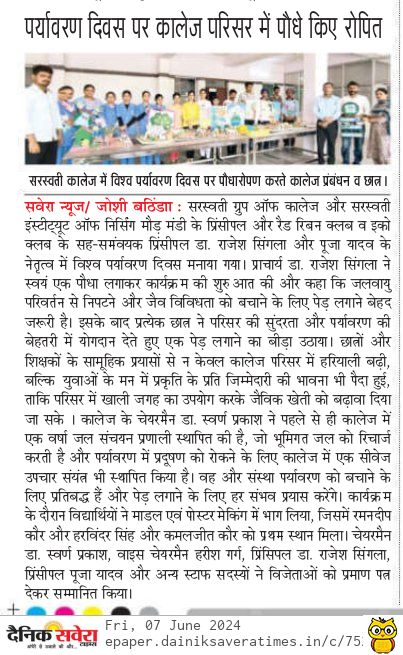
Environment Day Celebration
Jun 05,2024
Ram Nagar, Maur Mandi, District Bathinda - 151 509 (PB) INDIA

Microbiology laboratory is a facility dedicated to the study of microorganisms, including bacteria, viruses, fungi, and protozoa. The lab is equipped to culture, identify, and analyze these microorganisms to understand their structure, function, genetics, and role in various environments. Common activities in a microbiology lab include:
Culturing Microorganisms: Growing microorganisms on various media to study their growth patterns and characteristics.
Microscopy: Using microscopes to observe the morphology of microorganisms.
Staining Techniques: Applying stains to make microorganisms visible under a microscope.
Biochemical Tests: Performing tests to identify microorganisms based on their metabolic activities.
Molecular Techniques: Using PCR, gel electrophoresis, and sequencing to analyze microbial DNA and RNA.
Antibiotic Sensitivity Testing: Determining the susceptibility of bacteria to different antibiotics.
Environmental Sampling: Analyzing samples from various environments (soil, water, air) to study microbial diversity and activity.
Microbiology laboratories are essential for research in medicine, agriculture, environmental science, and biotechnology, helping to understand and manage infectious diseases, environmental impacts, and industrial processes.
Copyright © 2023 Saraswati Group of Colleges, All rights reserved
Website developed by Altbit.